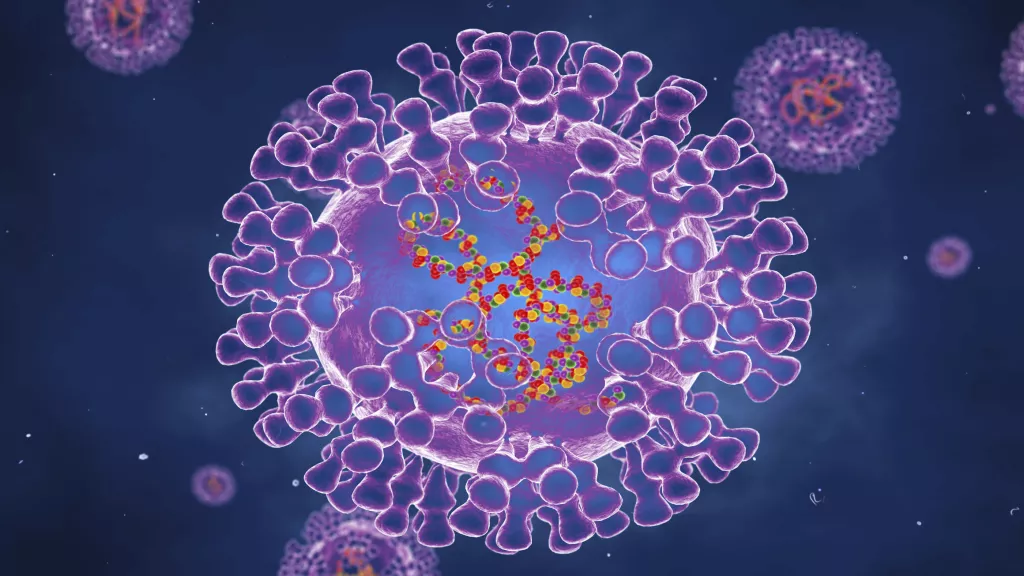
It seems that another disease is about to spread around the world. Of course, we hope not. It has not been long since we started recovering from the effects of the covid-19 on our lives. Yet, one should not close his eyes to the truth because understanding the way this disease works and spreads is essential to protect ourselves and the ones we love. Therefore, we present in this article, a definition of monkeypox, the ways it can spread and explain what precautions should be taken in order to make sure we are all safe and well.
What is Monkeypox?
Monkeypox is, fortunately, a rare disease. As its name indicates, it is part of the same family as smallpox. This rare disease is caused by the monkeypox virus. The good news is that its effects are less severe than those of smallpox are and that smallpox vaccination is 85% effective with monkeypox according to the latest studies.
How does Monkeypox spread?
There are several ways in which this virus can spread. Here are the essential ones:
- Monkeypox could spread through sex.
- Monkeypox can spread through bodily fluids and respiratory secretions.
- The disease could spread through surfaces and materials if you touch them.
- The virus is transmitted from animals to humans through bites or scratches, handling wild games, or using products made from infected animals.
It is true that the majority of the cases have been caused by unprotected sex. Yet, this virus, according to scientists, is super stable outside the human body, so it is very likely to stay on the surfaces and materials that we use every day.
What Precautions to Take to Protect Ourselves?
In order to protect ourselves and the ones we love from this disease, it is greatly important to take all precautions needed. First, one should avoid having contact with anyone who has been diagnosed with the disease recently. Also, wearing a facemask when having contact with somebody who has symptoms is a good way to protect yourself. Moreover, you need to avoid contact with animals that could carry the virus, including sick or dead animals. When it comes to sex, make sure to use protective measures. As for food, try to eat only meat that is very well done.
In addition to the previously advised measures, good hygiene is not to be ignored. Once you make contact with infected animals or humans wash your hands with soap, water and some alcohol-based sensitizer.
Symptoms of Monkeypox
Some of the early signs of monkeypox include:
- Fever.
- Chills.
- Mild rashes
- Headache.
- Muscle aches.
- Fatigue.
- Swollen lymph nodes.
After one to three days, you will notice a rash with raised bumps. This rash usually starts on your face and then spreads to other parts of your body. It starts as flat, red bumps, which turn into blisters. After some days, the blisters crust over and fall off.
Once you notice these symptoms, consult your doctor so that he can closely monitor your case.
Recently, the Dubai Health Authority (DHA) has announced the quarantine measures to take for the confirmed cases and close contacts.
Confirmed Case Quarantine Measures
An individual is considered a confirmed case if he/she shows the said above clinical symptoms and the PCR test comes back positive. The samples are collected through a throat swab and the skin is scraped for vesicle fluid using a dry swab and tested in the lab.
Once the patient is confirmed to have the monkeypox virus, the DHA will contact them to complete the isolation procedures. The patient must remain in isolation for a period of 21 days either at home or in an institutional isolation facility. During the period of isolation, the patient must have easy access to necessary health care. If the symptoms of the patient start to worsen, then he/she must go to the nearest medical facility.
Home Isolation
If a patient chooses home isolation then there are certain conditions that must be met.
- It must be made sure that the selected room for isolation should have adequate ventilation and a separate washroom.
- The patient must be an adult in stable condition and vitals.
- If the condition of the patient seems to change or worsen, then he/she should go to the nearest hospital or medical centre.
- The patient should have access to a first-aid kit and a thermometer
- Proper knowledge of how to dispose of the medical and other potentially contaminated waste safely.
- Proper knowledge about hygiene to further prevent the spread of the virus.
Institutional Isolation Facility
If the patient doesn’t have any means for home isolation, then he/she can opt for an institutional isolation facility. The conditions and place of isolation will be determined by the medical team supervising the treatment of the patient.
Close Contact Quarantine Measures
If a person has been in close contact with a confirmed case of monkeypox for a long period of time, or with a confirmed infected animal, then he/she is considered a close contact. The DHA will contact such persons and inform them of the exposure to the virus. The individuals then must isolate themselves in a separate room with good ventilation and adequate amenities including a separate washroom for 21 days until it is confirmed they are free of the virus. During this quarantine period,
- He/she must only use their own personal items
- Maintain hygiene
- Closely monitor if any clinical symptoms appear. Do daily temperature checks.
- If any of the symptoms appear, then contact the DHA call centre at 800342 and inform them of the situation.
- During the quarantine period, they must not donate blood or feed breast milk to babies and infants.
As the wise say, “prevention is better than cure”. So be sure to stay safe and stay healthy. Check out our other stories on Skyloov’s blog.





